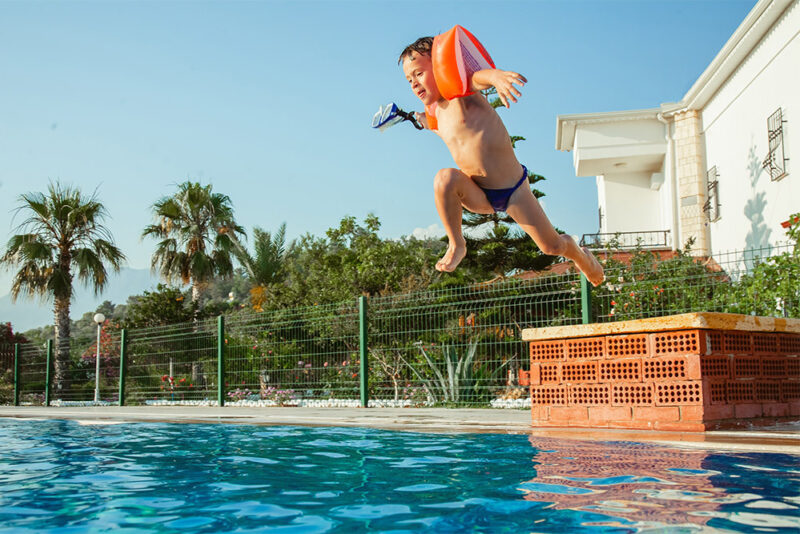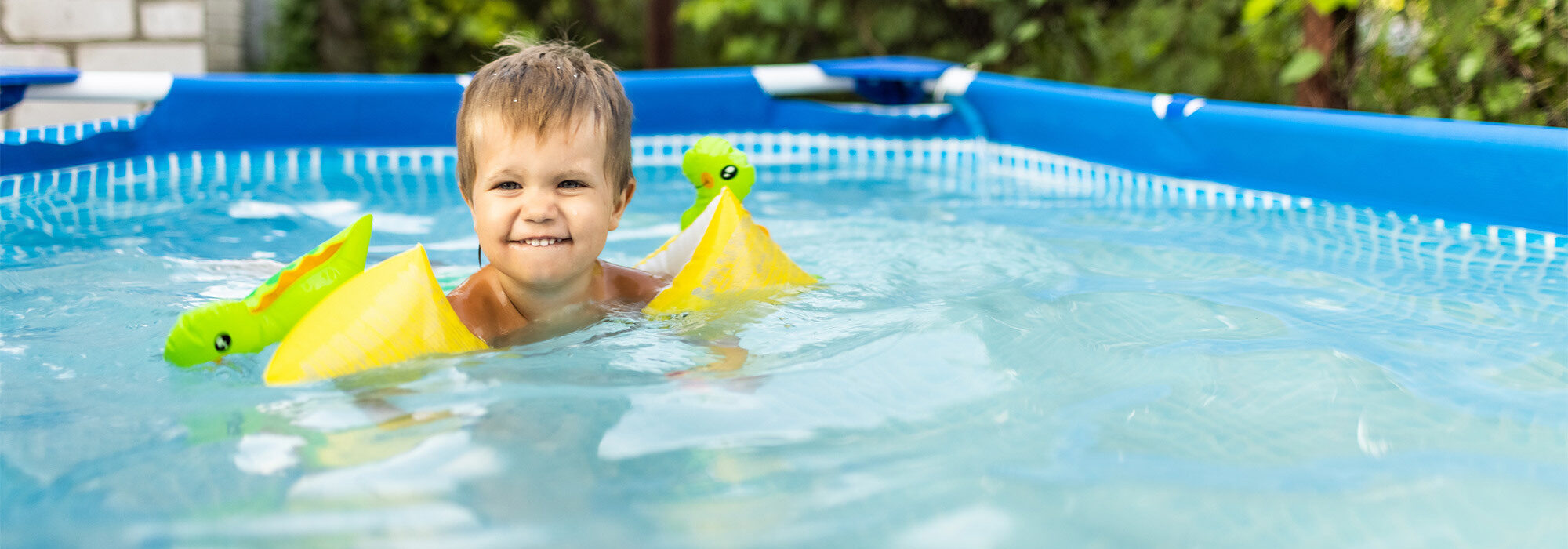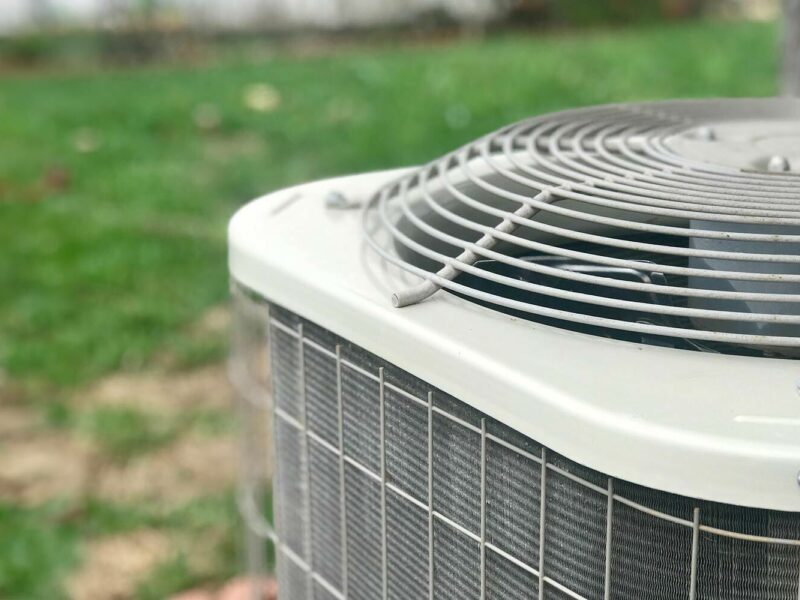Article Excerpt
Thinking of owning a backyard pool? Be aware of the safety risks and Texas pool laws before inflating those floaties.
It’s summertime in Texas, which means hot temperatures and the allure of a refreshing dip in the pool. Whether you share a community pool with others or have a pool of your own, safety is of the utmost importance. This is especially true when you have people over to use your pool. An injury to you or someone close to you can quickly ruin your summer. It can also leave you on the hook for medical bills and other damages.
Many local building codes and safety regulations in Texas set minimum standards for maintaining a safe pool environment. This article offers an overview of your responsibilities as a pool owner, your potential liability for injuries, and tips for how to keep everybody safe this summer.
Read more: 3 Types of Backyard Pools
» READ MORE: 3 Types of Backyard Pools

Photo by Quark Studio on Pexels
What Homeowners Risk by Having a Swimming Pool
Swimming pools can be extremely dangerous if you are not careful. You or a loved one could suffer injuries or worse. You may also risk liability for injuries to other people using the po
Risk of Injuries
Slippery surfaces around a pool can result in severe injuries, including bruises, sprains, broken bones, and head injuries. Extra equipment like a diving board or slide presents even greater risks.
The worst-case scenario, of course, is that someone suffers a fatal injury, such as by hitting their head or drowning. According to the Centers for Disease Control and Prevention (CDC), drowning is the leading cause of “unintentional injury death” for children ages 1 to 4. It ranks second for children ages 5 to 14. For the period from 2018 to 2021, the annual average rate of drowning deaths was 1.31 per 100,000 people nationwide and 1.44 per 100,000 in Texas.
Liability to Guests
As the owner of your home and the swimming pool, you have a legal responsibility to provide a safe environment for your guests. This includes friends you invite over for a pool party and workers who perform pool maintenance. If you know about a dangerous condition, such as an area where someone is likely to slip and fall, you must either repair it or warn people about it. You may be liable for people’s medical bills and other losses if they are injured.
Liability to Trespassers
It might seem odd to think that, in Texas, a homeowner could be liable for injuries suffered by a trespasser. That’s the law in certain situations, though, under what lawyers call the “attractive nuisance” doctrine. This rule specifically applies to children, who do not have the same ability as adults to judge whether something is safe or off-limits. Swimming pools are a common example of something that is highly dangerous and that children might find irresistible.
A homeowner must exercise “reasonable care” in order to avoid being liable for injuries to a child who trespasses onto their property to use a feature like a swimming pool. This might involve following legal standards regarding fences, pool covers, and other measures to prevent access to the pool area.
Insurance Coverage
Homeowners insurance covers many types of liability for injuries on your premises. You should check your policy to see if it includes pool injuries. Do not assume that your pool is included. You can expect to pay a higher premium for pool coverage.
» READ MORE: Shipping Container Swimming Pools?!

Legal Requirements for Pool Safety
Laws or regulations in Texas set minimum standards for pool safety. This includes a fence or other enclosure for the pool area, as well as water quality standards.
State Law
The design, manufacture, and installation of the pool itself are governed by state and federal law. Texas has adopted the provisions of the International Swimming Pool and Spa Code (ISPSC) for all public and private swimming pools. The ISPSC sets detailed standards for nearly all aspects of a pool.
The Texas Health and Safety Code sets minimum safety standards for enclosing public swimming pools, pools in apartment complexes, and other community pools. While this does not cover private residential pools, it offers useful guidance for homeowners. The statute provides several important definitions:
A “pool” is a “permanent swimming pool,...wading or reflection pool, or…hot tub or spa over 18 inches deep,” regardless of whether it is “located at ground level, above ground, below ground, or indoors.”
The term “pool yard” refers to “an area that contains a pool.”
A “pool yard enclosure” may consist of any “combination of fences, walls, gates, windows, or doors that completely surround a pool.”
A fence used as a pool yard enclosure must be at least 48 inches tall and must not allow small objects to pass under or through it. Chain link fencing is prohibited as an enclosure for any public or community pool built since 1994.
Local Ordinances
Municipal and county building codes regarding swimming pools must be at least as strict as the ISPSC. They may set stricter standards in some situations.
Federal Law
A federal statute, the Virginia Graeme Baker Pool and Spa Safety Act (VGBA), took effect in 2008 and applies to both public and private pools nationwide. It is named after a girl who drowned in 2002 when suction from a hot tub drain trapped her underwater. The statute sets minimum standards for all pool drains.

Photo by Engin Akyurt on Pexels
Best Safety Practices for Home Swimming Pools
The following tips can help keep your pool area safe for everyone:
Maintain your fencing: Make sure you patch any holes or openings in the fence around your yard to prevent “attractive nuisance” liability.
Use temporary fencing: You can place a removable fence directly around the pool to keep children away from it.
Use a strong pool cover or net: Mesh pool covers can support the weight of several children, giving you precious time in case someone falls. A motorized pool cover can provide even better protection.
Lock up the pool chemicals: You need to keep the pool’s pH levels in balance, but you should also take care that no one can get into those chemicals when you’re not using them.
Invest in an alarm: Several types of pool alarms are available. You can get an alarm that notifies you if someone opens the door or gate to the pool enclosure. You can also get one that detects waves or other water displacement, which indicates that someone is in the water.
Be watchful: As the pool owner, you are responsible for being the lifeguard. Keep an eye on the pool area whenever people are out there.
» READ MORE: How to Keep Your Pool in Great Shape for the Summer
Now for the fun part: get your own pool!
We don’t mean to be Debbie Downers on summer fun. We’d actually love to help you finance your next home, complete with the aquatic oasis you’ve always dreamed of. If you already own a home and are looking to add a pool, whether above-ground or in-ground, we have competitive financing options for that, too!
Get started with The Wood Group of Fairway for an honest, thorough, and friendly mortgage experience. See what you qualify for by answering a few easy questions!



